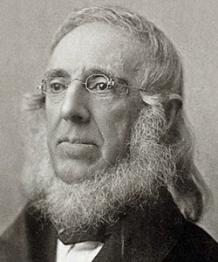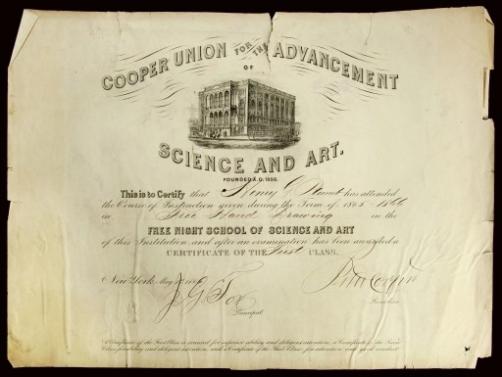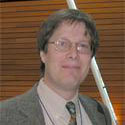Making Millions And Making A Difference: Peter Cooper

Peter Cooper: Private Citizen
by Joaquin Miller
GIVE honor and love for evermore
To this great man gone to rest
Peace on the dim Plutonian shore
Rest in the land of the blest.
I reckon him greater than any man
That ever drew sword in war;
I reckon him nobler than king or khan,
Braver and better by far.
And wisest he in this whole wide land
Of hoarding till bent and gray;
For all you can hold in your cold dead hand
Is what you have given away.
So whether to wander the stars or to rest
Forever hushed and dumb,
He gave with a zest and he gave his best
Give him the best to come.
Robert Q. Topper, "Making Millions and Making A Difference: What We Can Learn From Peter Cooper," the 1999 Henry Bellows Lecture, All Souls Historical Society, The Unitarian Church of All Souls, New York, NY (1999). Click Here to Download
Background:
Since coming to Cooper Union in 1993, I have spent a great deal of my spare time learning about our founder, Peter Cooper. During his lifetime he was arguably the most beloved person in New York City. I spent a sabbatical researching the life and times of Peter Cooper by commission of the Unitarian Church of All Souls, of which he was a noted and beloved member. Although most of it is correct, some of the facts that I uncovered at that time have proven to be incorrect (despite their having been obtained from what seemed to be reliable sources!). In particular, I used bad information about the amounts donated by Carnegie and his heirs, the matching agreements, and the mechanism by which the Cooper Union gained control of its most valuable property - the Chrysler Building property. I currently agree with the historical timeline described on page 7 of this document.
Since giving this lecture long ago, I've come across a few new references in addition to those cited in the Bibliography. I'll share them here. Since Google did not exist in 1999, I missed quite a bit!
(1) Life And Character of Peter Cooper, by Charles Edward Lester (J.B. Alden, New York, 1883).
(2) Peter Cooper, by Rossiter Worthington Raymond (Houghton-Mifflin and Co., New York, 1901).
(3) Peter Cooper: A Mechanic of New York, by Gano Dunn (The Newcomen Society, New York, 1949).
(5) Save Cooper Union, by S. Iyer (n+1 magazine, online (April 2013).
(6) On Amateurs and Access, by S. Iyer (blog, April 7, 2012).
(7) A Note on the Tuition Issue, by P. Buckley (post, June 5, 2013).
(8) Cooper Union's Current Mission Statement (linked September 2014).
(10) Autobiography of Peter Cooper, Dictated by him February 20 - April 17, 1982 (linked February 2015).
(13) The Tragedy of Cooper Union, Felix Salmon, Reuters (4/29/2013).
(14) Free as air and water, Sam Holleran, Places Journal, May 2019. Accessed 22 Feb 2021. https://doi.org/10.22269/190507
In addition: here's a letter that I wrote which was published in the New York Times in 1997. It was edited a bit and ended up with a really annoying error that was not in my original submission. It should read, in part: "This school, established in 1859 and where I am now an assistant professor, was the nation's first coeducational institution for post-secondary public education in engineering." Of course, the first co-ed institution in the United States was Oberlin College. Cooper Union was the first private college that admitted all genders, races, religions and economic classes (Oberlin admitted all races and genders, but it was a Presbytarian institution and required religious instruction of all students until 1965). The first college or university in the USA to not restrict admission on the basis of gender, religion or economic class appears to be the University of Iowa (1855). It is not clear whether Iowa admitted African American students at the very beginning. Iowa's public schools were not open to all races until 1868, so it's likely that the University of Iowa began admitting without regard to race at about that time - some years after Cooper Union's broad admission policy. The precise year is not public knowledge, but was definitely prior to 1879.
You may be interested in the following pages:
Peter Cooper: A Short Biography of A Big Man
Thomas Edison, Chemistry, and The Cooper Union
Peter Cooper As Chemical Engineer: The Invention of the Gelatin Dessert
Improvement in the Preparation of Portable Gelatine, Patent # 4084, Peter Cooper

Last edited February 22, 2021 by RQT.

